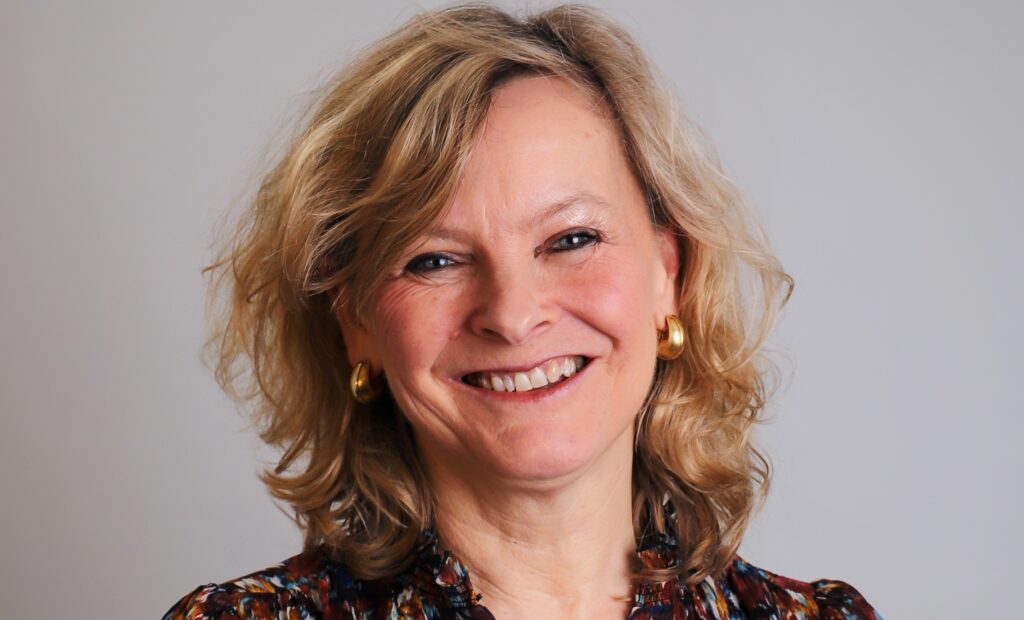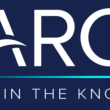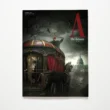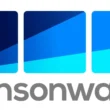Amanda Barnes is CEO and owner of Faversham House (FH), the 62-year-old B2B media, information and events company. She joined FH (which had been founded by her father) in 1989 after an initial career in investment banking.
The company had been one of a wave of UK startups in the second-half of the 20th century to exploit the boom in B2B advertising and exhibitions, and the growth of controlled circulation free distribution. It launched its first trade shows in 1973.
In 2010, Barnes negotiated an MBO of the family-owned publisher. The deal then valued it at £4mn, with £2mn investment from Mobeus. The private equity firm exited in 2013, giving the CEO majority ownership. The decade since has been marked by a decisive move away from its traditional base of advertising-funded magazines to online information, marketing solutions, subscriptions and events. Its just published its last printed publication. FH operates in three markets: utilities, sustainability, and visual communications. Its principal brands include: Utility Week, Sign & Digital UK, and the flagship EDIE (which is said to be an acronym of Environmental Data Interactive Exchange but was actually named after the tea lady).
Faversham House, which employs 55 people, is estimated to have 2023 revenue of some £6mn and is bouncing back towards a pre-pandemic peak of £9mn when the headcount was 80. It is based in historic East Grinstead, 50 miles south of London.
Amanda Barnes graduated in English from Oxford University and has an MBA from IMD, in Switzerland.

What were your earliest ambitions?
I’m not entirely sure I had any for quite some time. I had a vague idea I’d become a lawyer though, when I opted to study English at university, I probably knew I wasn’t going to go down that route. Words have always been one of my great joys – which is a bit ironic since I am dyslexic and had a tough time learning to read as a child. I think it was also a bit of sheer bloody-mindedness that made me focus on the one thing I knew would be difficult for me to study. Then, spending all day reading great literature and being able to say you’d had your nose to the grindstone seemed to be a real win-win. Handing in the essays was a little more challenging!
After university, I hadn’t really a clue what to do, although I knew I wanted to earn good money. For some reason, I decided to become a banker with absolutely no idea what it involved. I remember going to interviews at university and bumping into a fellow undergraduate who was also interviewing for the job. He asked me what I was doing there because he thought I was at the secretarial college. Well, I got the job at Citibank (as it was then) and never really looked back.
I loved it, mainly the analytics and learning about different industries, understanding what made them tick and it’s a skill that has helped me throughout my career. I found I had excellent intuition about business and the people, rather less about the numbers. During my training, I remember my manager – despairingly – commenting how I always reached the right answer. But, if only I could back it up with a few more numbers, it would be useful working in a bank. Understanding the numbers came with time and now, of course, it’s second nature.
What was your first job?
I taught myself to touch type when I was 10 and my first paid job was as a temp secretary during uni working in all sorts of companies. It fed my curiosity about business – and paid for my somewhat extravagant lifestyle. I learned a huge amount from all those temp jobs, especially how to work constructively in a team and to be adaptable.
Why did you join Faversham House?
I suppose I was always destined to join the family company: you could say I was born to it! My dad launched FH with a business partner when I was born, so it was always a big part of my childhood. We lived four doors down from the offices at the time in the ground floor of my grandmother’s home – Faversham House – which is where the company name came from. One of my earliest memories was the huge Addressograph machine in the cellar which printed all the postage labels for the magazines. I spent many happy hours from a very early age sitting with the out-workers stuffing magazines into envelopes in the days when it really was a cottage industry. The original publication Heating & Ventilating Review was affectionately known as Meat & Veg at home – because that’s what it put on the table.
My dad was amazingly entrepreneurial and had an extraordinary vision. I learned a tremendous amount from him. The early years were very hand-to-mouth and he worked hard. That work ethic, from both my parents, has underpinned my whole approach. Adversity too has often been a great spur. Being rather stubborn, if someone tells me I can’t do something, it just makes me try harder to prove them wrong.
I enjoyed life at Citi and especially my last role as Chief of Staff for the head of the corporate bank, because I learned so much about how a big business was run, though I couldn’t see myself being there long-term. I decided to do an MBA for the fun of it. At the end, I had an agonising choice to make: whether to accept an attractive offer from a Swiss Bank or join the family publishing business – at half the salary. I chose publishing and the opportunity to run a business, although – once I had decided – it took all my powers of persuasion to get my Dad and big brother to agree to have me!
I loved it from the start: the variety, the pace and the challenges. Looking back, I think it has always been the dynamism that attracted me. Nothing stood still, competition was fierce and we were always the little guy up against the big groups. Creativity drove us and a passion to be the best. I think the ability to evolve constantly has been an undercurrent of my career and I’ve never been afraid of a challenge.
I think the big difference between when I first joined and now was that the audience previously didn’t really feature: they were passive bystanders you fed information to, it was the advertisers you tried hardest to please. Now, we are very much focussed on the audience and meeting their needs. The business models were also much simpler – you were either a controlled circulation (free) magazine business or a subscription one. Now, the sheer multiplicity of business models is extraordinary and very invigorating, especially in B2B.
How did the MBO come about?
I am one of four siblings and the other three (two are 10 years older than me) wanted to retire. We were at different life stages: my children were in pre-school and my brother’s were finishing university. But it was challenging because they were all adamant they wanted to exit straight away and not over time. The UK tax laws can work against small companies trying to transition between generations and make it very difficult to structure an exit.
We looked at a trade sale. But, ultimately, I realised it was me that was being sold as much as the business. That being the case, I wanted to be in control of the process. As traditional banks were not interested in funding the shareholders’ exit, I had to turn to private equity. I found myself an advisor, pulled together an IM and started a process. I was very lucky that Carl Myers, our CTO, wanted to invest too and it has been great to have that non-family member alongside me who is as committed to the business as I am, in the original transaction and ever since.
But the deal was tough and it took a good year to complete. There’s no doubt it occupied a lot of mind space and did take me away from the day job, especially with two children at school and a husband whose job required endless international travel. Having said that, my finance background and the fact my husband’s businesses were PE-backed meant I went into it all with my eyes wide open.
There are unique challenges, of course, when you are dealing with a business completely interwoven with your family. However, we’ve always been exceptionally close and none of us are greedy people. We also shared an enormous desire to do what was best for the company and the people. I can’t say it was easy and it certainly had its moments. There was a particular moment at the solicitor’s office when we were about to sign and there was an issue with a warranty over the gas bills (it’s a long story…) when my brother was digging his heels in. I had to be very firm and focus him on the end game!
The process wasn’t made any easier by the fact we also bought Utility Week from Reed Business Information at the same time and running two parallel sets of negotiations and due diligence was interesting, to say the least. I had to be very careful to remember which deal I was actually working on.
What are the milestones of the first decade of your ownership?
We struggled in the early days to understand what type of company we truly were – events, publishing etc. We also weren’t a united board and had different visions for the future. This impacted the rest of the business and I had to take some tough decisions to move the company forward. I’ve learned the hard way how it’s better to deal with people issues quickly than let them fester. I’m proudest of how we rose to the challenge of the pandemic. There were moments in the beginning when I just wasn’t sure how we’d survive the next month. This is when we drew most strongly on our values: to be ambitious, creative – and to care. We totally reinvented ourselves, took some very bold decisions and innovated for all we were worth. As for many, the pandemic was a catalyst for far greater long-term change for us. We’ve come out much stronger and with a clear vision of what we want to do and, with that, has come a more profitable and vibrant company.
What’s special about Faversham House?
It will always be the people. We have a very strong, collaborative culture and many amazing people. We are passionate about living our values and we’re not afraid to be bold, to challenge ourselves. “Small but mighty” is how someone once described us. I think that’s right. We are always challenging ourselves to do better and we try hard not to be complacent. We know we don’t have the money the big guys have. But we are very agile and we take calculated risks.
What is your own primary role?
I’m good at joining the dots and spotting opportunities. I enjoy leading a brilliant group of passionately committed, incredibly talented people in industries which are making a real difference to all our futures. I’m very focused on how we do business too. We’ve just submitted our application for B Corp certification (verifying high standards of performance, accountability, and transparency). It has been an enlightening process and we’re very excited to see how this develops. I love the intellectual challenge of being in a fast-evolving industry, though a period of relative calm wouldn’t go amiss after the pandemic years.
What’s your vision for the company?
Data is central to our renewed success and I’m enjoying exploring the potential of AI to enable us to innovate further and faster. We are deeply embedded in our two main sectors of utilities and sustainability. I think we will continue to push up the value chain with our marketing services business and our paid subscriptions and memberships.
We’ve just printed our last physical magazine issue and are now fully digital with very little pure advertising, a complete transformation from when I joined the business. Face-to-face events are an extremely important part of what we offer our audiences and commercial partners, and that will continue to grow. We’re developing our own data products based around our expertise in our markets and the enormous number of touchpoints we have with the industry. The technology is now there for us to join all these dots together and that’s exciting.
What’s been the lasting impact of the pandemic?
It emboldened us. It fundamentally changed our mindset and released an amazing wave of creativity. It reinforced our commitment to incredible, quality journalism as the bedrock of what makes us different. Our relationships with our commercial partners and our audience subtly changed as well, with a more partnership approach and that has remained. Collaboration within teams and across the business has strengthened too.
What are the best lessons you have learned?
To step back calmly and take that longer, wider view. Be kind to people. Always look for the opportunity, I’m a born optimist!




